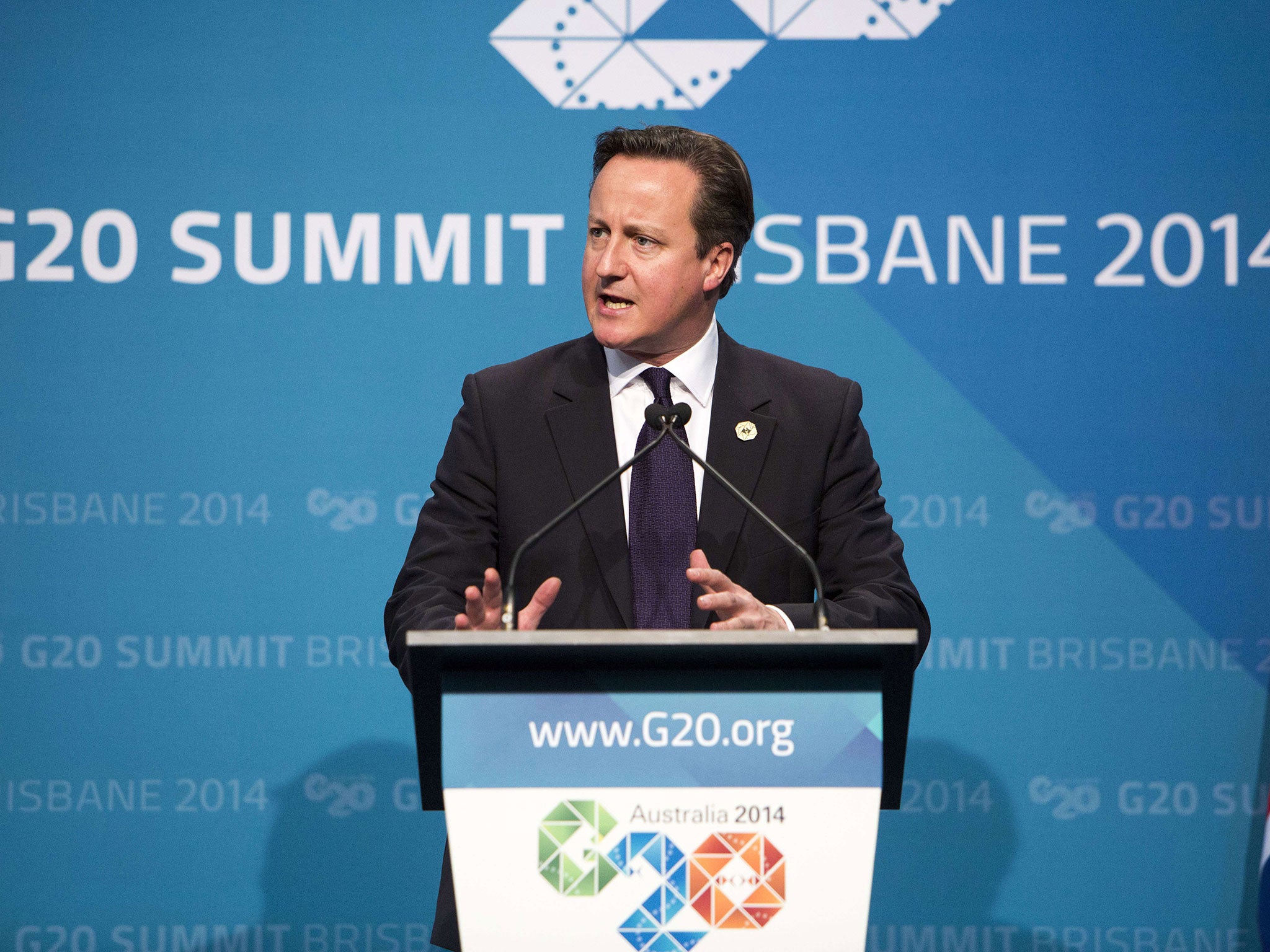G20 summit: David Cameron pledges UK will ‘play its part’ in backing climate fund to help developing countries tackle emissions
Cameron risks wrath of MPs sceptical about global warming and opposed to foreign aid

The UK is to pour hundreds of millions of pounds into a United Nations-backed fund designed to help developing countries tackle greenhouse gas emissions.
David Cameron is finalising the exact amount that Britain will contribute to the Green Climate Fund, but confirmed at the close of the G20 summit in Brisbane on Sunday that the UK would “play its part”.
The funding will go some way to meeting his pledge in 2010 that the Coalition would be the “greenest government ever”, a vow that his Liberal Democrat partners argue he has reneged upon. But the move looks sure to anger Conservative backbenchers, many of whom want to see Britain cut foreign aid. They fear the proposal will play into Ukip’s hands ahead of the by-election in Rochester and Strood on Thursday.
Mr Cameron is already facing rows with his backbench critics this week over the Government’s decision to opt back in to the European arrest warrant and its defence of the Barnett formula, which protects the level of public spending in Scotland. The PM’s announcement came after President Obama pledged $3bn (£1.9bn) for the scheme on Saturday. Japan has offered a further $1.5bn (£960m). With the UK’s money to come shortly, donations from countries such as the Netherlands (around $125m; £80m), and a money-raising conference in Berlin next week, the fund should hit its target of at least $10bn (£6.4bn) by the end of the month. That total could swell to $100bn by 2020, when it will have been boosted by private sector cash.
Although first proposed four years ago, the Green Climate Fund has only recently become fully staffed and it is not yet clear whether its directors or national governments will decide how it is allocated.
Climate change was not expected to be a major issue at the G20. Tony Abbott, the Australian prime minister and G20 president this year, was not keen to have the issue on the agenda and yesterday told his fellow leaders that he was “standing up for coal”. Mining is a major reason for the economic strength of Australia.
But a deal signed by the US and China, which account for about 40 per cent of global greenhouse emissions, seemed to refocus the agenda.
Eventually, a passage on climate change made it into the summit’s conclusions, which said the G20 supported “mobilising finance for adaptation and mitigation” of carbon emissions, noted that development of clean energy sources would support economic growth, and that member countries would “phase out inefficient fossil fuel subsidies that encourage wasteful consumption”. Australian media suggested that the “bromance” between Mr Cameron and Mr Abbott, which has been evident in recent days by their praise of each other’s handling of the economy and international threats, led to the Australian prime minister agreeing to put climate change in the communiqué.
Mr Cameron pointed out there is an international conference on climate change in Paris late next year and that “everyone has to bring” plans to reduce emissions.
The Prime Minister claimed that climate change was always going to have to be discussed at the G20, “not least” because China and the US are members.
Mr Cameron was successful in getting a statement on the Ebola crisis in West Africa mentioned in the communiqué. He has been frustrated that some members of the G20 – believed to include Mexico and Indonesia – have not contributed much aid to Sierra Leone, Liberia and Guinea.
The passage called on “international financial institutions to assist affected countries”, while Mr Cameron pledged £1.34m for five Ebola research projects.
Join our commenting forum
Join thought-provoking conversations, follow other Independent readers and see their replies
Comments